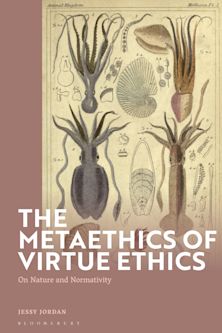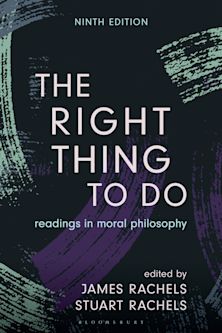Motivation in the Ancient Greek Ethos
Punishment, Shame, and Moral Guilt
Motivation in the Ancient Greek Ethos
Punishment, Shame, and Moral Guilt
This product is usually dispatched within 1 week
- Delivery and returns info
-
Free US delivery on orders $35 or over
Description
Motivation in the Ancient Greek Ethos: Punishment, Shame, and Moral Guilt explores motivational techniques that were utilized in the Ancient Greek culture (from Archaic to Classical periods) to channel the reluctant agent's behavior in a desirable direction. Structured around several types of "appeal to fear" strategies--including an appeal to fears of divine retribution, earthly punishment, public disgrace, or oblivion--, this book analyzes these strategies with regard to their efficiency, practical applicability, and normative priority. In addition, Andrei G. Zavaliy argues that towards the end of the Classical period of Greek history the repertoire of the standard motivational strategies was enriched by a new possibility: an appeal to fear of self-shaming and, in general, to fear of painful inner qualms as a consequence of misbehavior. The latter type of incentive was clearly present in Democritus and appeared somewhat tangentially in Plato but was emphatically restated by Aristotle. Zavaliy further suggests that the type of psychic discomfort experienced by a wrongdoer, according to Aristotle, is structurally similar to the "pangs of conscience" in the way this phenomenon was developed during the late Hellenistic period, and, this Aristotelian psychic discomfort can thus be reasonably correlated with the feeling of moral guilt.
Table of Contents
List of Abbreviations
Introduction: The Value of Fear
Chapter 1. The Fear of Divine Punishment
Chapter 2. The Fear of Earthly Punishment
Chapter 3. The Fear of Oblivion
Chapter 4. The Fear of Disgrace
Chapter 5. The Fear of Self-Reproach
Conclusion: Fear, Persuasion and Duty
Bibliography
Index of Ancient Authors
About the Author
Product details
| Published | Dec 16 2024 |
|---|---|
| Format | Hardback |
| Edition | 1st |
| Extent | 310 |
| ISBN | 9781666920543 |
| Imprint | Lexington Books |
| Dimensions | 9 x 6 inches |
| Publisher | Bloomsbury Publishing |
Reviews

ONLINE RESOURCES
Bloomsbury Collections
This book is available on Bloomsbury Collections where your library has access.



































